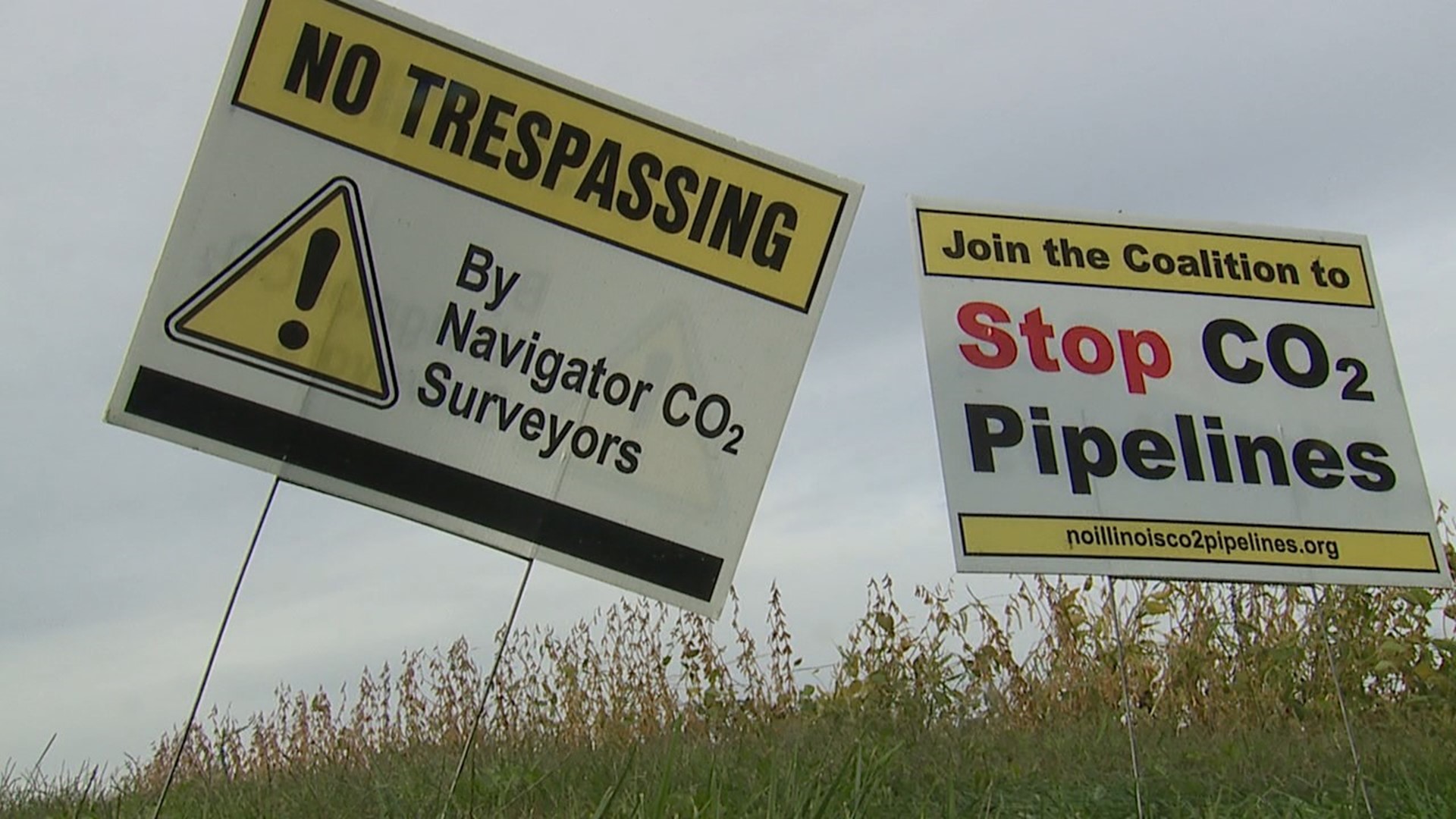GALESBURG, Ill. — Members of the Coalition to Stop CO₂ Pipelines presented their concerns about a proposed 1,300-mile carbon capture pipeline to the Knox County Board Wednesday.
The "Heartland Greenway" Navigator CO₂ Ventures pipeline is proposed to be built across five states, including Illinois, Iowa, Minnesota, Nebraska and South Dakota. About 250 miles of the pipeline would run through 13 Illinois counties.
The pipeline would capture carbon dioxide from the air, turn it into liquid and then store it in the ground at least a mile deep at a sequestration site in Christian County, Illinois. It would connect to the Big River Resources ethanol plant in Galva and travel through Hancock, Adams, McDonough, Henry, Knox, Fulton, Schuyler, Brown, Pike, Scott, Morgan, Sangamon and Christian counties.
The carbon capture pipelines are meant to help the ethanol industry remain viable as federal and state governments look to limit greenhouse gas emissions. Navigator says it will offset the emissions of 15 million metric tons of CO₂ each year.
With Navigator filing in July for its certificate of authority from the Illinois Commerce Commission, a petition it needs to get approved before it can start construction, the Coalition to Stop CO₂ Pipelines is asking counties to intervene.
The ICC has 11 months to make a decision, reviewing evidence from Navigator's lawyers and lawyers representing those who oppose the pipeline. County governments have the option to participate in the review, create a six-month pause to construction while they finish studying the impact of the pipeline or draft zoning laws to mandate how closely the pipeline can be built next to residential areas.
Sangamon and McDonough counties have already decided to intervene.
"They also will listen to government talk about the impact of pipelines on three things, your economy, public safety and infrastructure," said Pam Richart of the Coalition to Stop CO₂ Pipelines. "If you intervene, you have the opportunity to share those concerns with the ICC, but only if you intervene."
The pipeline is proposed to run through approximately 40 miles of Knox County.
Richart said 194 people live within a mile of its potential route.
Opponents of the pipeline have continually noted concerns about it permanently damaging farmland and threatening the safety of residents living nearby.
"What will you sacrifice?" Lan Richart said. "Millions in publicly subsided tax credits, loss of crop productivity, lowered land and property values, damage to drainage tiles, the list goes on and on."
The Richarts encouraged the board members to listen to the concerns farmers have about their land being damaged.
The Knox County Board gave no indication whether it would intervene in the ICC's approval process, but it did say it would like to hear from supporters of the pipeline at its next meeting. One board member expressed frustration that Wednesday night's meeting didn't include both.
"I thank you for saying that next month we will be having a person, people come in and talk about the positive things for the pipeline, but when you have such a distance of one time to another, the poison of negativity, it goes in one and then you're festing on it," said District three representative Pamela Davidson. "I think this should have been done in a committee setting."
The Knox County Board will meet again on Oct. 26.
Watch more news, weather and sports on News 8's YouTube channel

